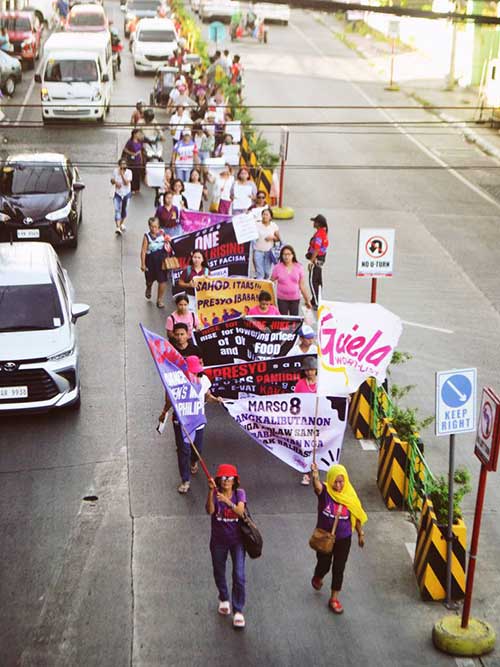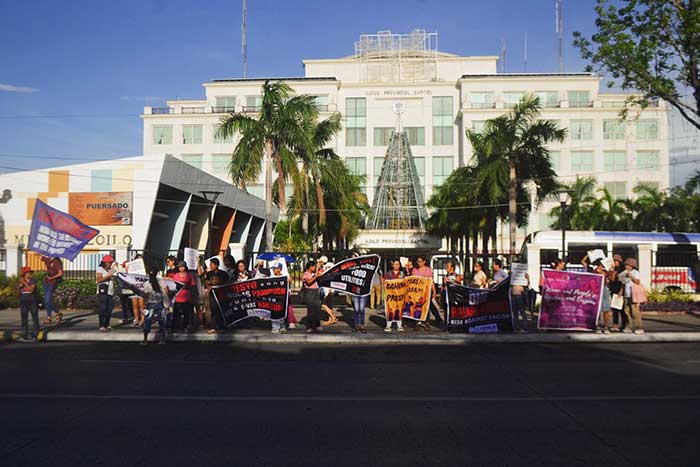
By Juliane Judilla
Women and multi-sectoral groups in Panay staged forums and protests to commemorate International Working Women’s Day 2025 on Saturday, March 8.
In Iloilo City, the Gabriela Women’s Alliance of Panay and Guimaras, Magsasaka at Siyentipiko para sa Pag-unlad ng Agrikultura (MASIPAG) Visayas, and the Panay Alliance of Concerned Citizens for Health and Environmental Protection (PACCEP) organized an agrofair at Jubilee Hall, St. Clement’s Church.
The fair showcased products and fresh produce from various women’s groups, alongside a forum addressing the challenges faced by working women in different sectors.
Lucy Francisco, spokesperson for Gabriela Panay and Guimaras and the seventh nominee of the Gabriela Women’s Party, emphasized the significance of women’s resistance throughout history and its relevance in today’s political climate.
Francisco discussed the history of International Working Women’s Day, noting that in 1911, more than a million women in Europe marked the first IWWD by demanding labor rights, an end to discrimination, and women’s suffrage.
She also highlighted that on March 8, 1971, the legal group MAKIBAKA led thousands of women in the Philippines to protest poverty, inhumane working conditions, and low wages under the administration of then-President Ferdinand Marcos Sr.
“From then until now, women have continued to fight for education, higher wages, food security, accessible social services, and the protection of human rights,” Francisco said.

Liza Lamis of the Association of Women in Theology also underscored the importance of understanding and supporting women’s struggles.
“We recognize the challenges women face, and we strive to educate people about the realities confronting the women’s sector today,” she said.
After the forum, the groups marched to the Iloilo Provincial Capitol for a short program, which ended with the One Billion Rising dance.
Meanwhile, in Roxas City, Capiz, and Kalibo, Aklan, protest actions were also held, where groups called for higher wages, an end to militarization in rural and urban communities, and government accountability, among other demands.
















